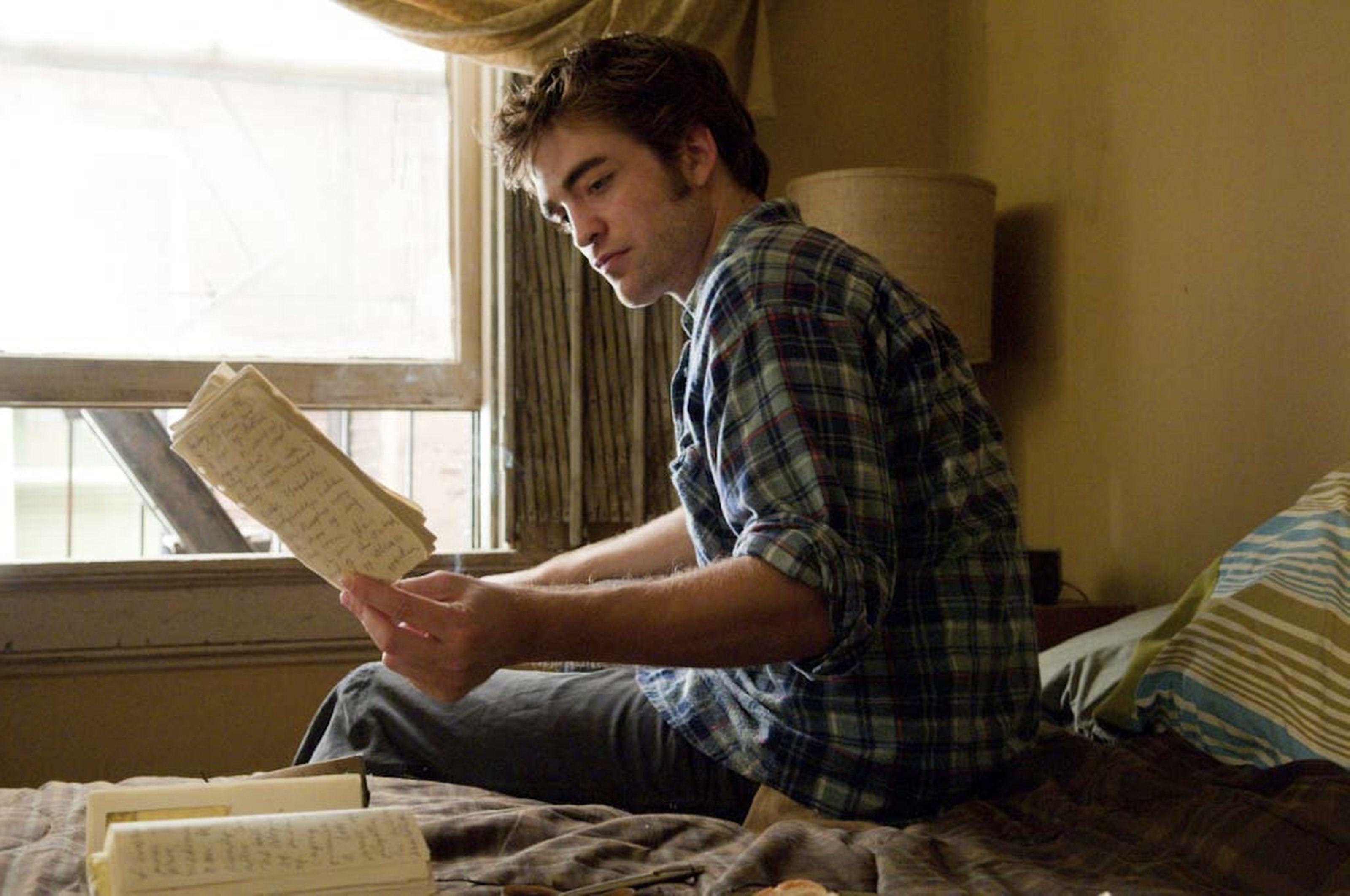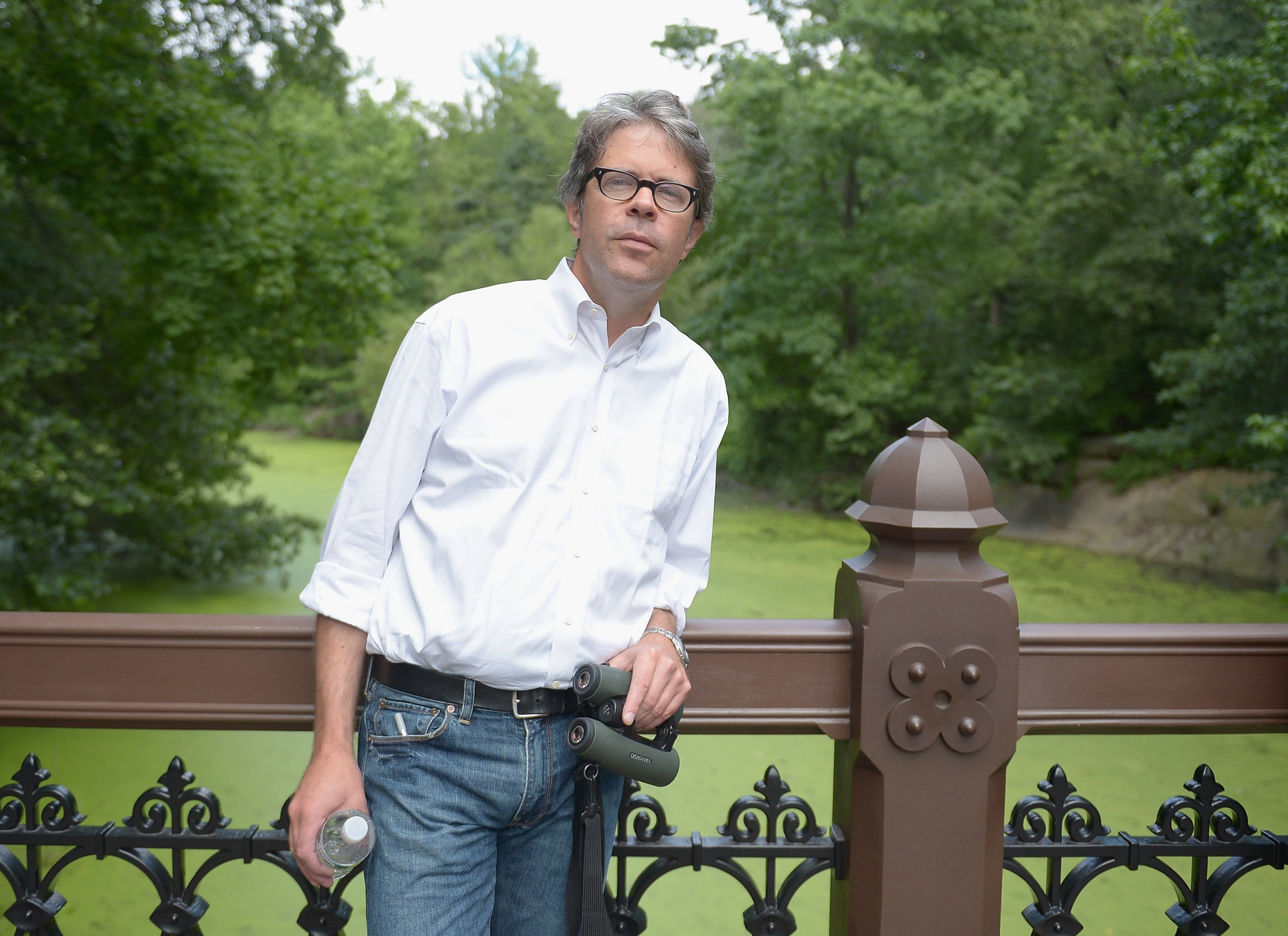- Culture
- Books
- Features
As debates over the ‘disappearing’ young male novelist rumble on, some authors and critics push back against claims that fiction has closed its doors to men. Hannah Ewens learns that the real problem is less about publishing and more about a wider societal issue
Tuesday 25 November 2025 06:00 GMTComments open image in galleryBookworm: Robert Pattinson in ‘Remember Me’ (Entertainment/Kobal/Shutterstock)
open image in galleryBookworm: Robert Pattinson in ‘Remember Me’ (Entertainment/Kobal/Shutterstock)
Get the latest entertainment news, reviews and star-studded interviews with our Independent Culture email
Get the latest entertainment news with our free Culture newsletter
Get the latest entertainment news with our free Culture newsletter
 Email*SIGN UP
Email*SIGN UPI would like to be emailed about offers, events and updates from The Independent. Read our Privacy notice
Tobi Coventry is invisible, yet he is here. A debut novelist writing about sexuality, desire and, inadvertently, masculinity: the kind of man, we’ve been told for the past five years, no longer exists. Or at least could not win the Booker Prize without causing a strange cultural shudder. He spends his days reading for a living, scouting books before they surface, digging through the backlist to find stories that might translate to screens. So when the book scout-turned-author read The Guardian’s view of the Booker – literary fiction “closed to men”, books about young men “hard to find”, David Szalay’s win putting “masculinity back at the centre of literary fiction” – he wondered, simply: what?
“Some of the best new books come from men and some of them come from women, and I’ve never sat there and thought, ‘God, I’m really waiting for a book from a man to come along,’” Coventry says from his home office in Rye. Behind him are bookshelves filled with the works of authors of all genders.
And then he begins to list these supposedly nonexistent men: the prolific Ben Myers, with his short-story collection Male Tears; Douglas Stuart; Michael McGee; Paul Mendez; Tony Tulathimutte; Djamel White. He notes that women, too, write about young men and masculinity — and I would add writers like Sally Rooney and Ottessa Moshfegh, whom The Guardian mentions even as it claims such writing is lacking, attributing that absence to the supposed dominance of their “female interiority.”
Coventry’s own debut, He’s the Devil, darkly comic and indebted to Stephen King, Moshfegh, and Eliza Clark, arrives next year. His protagonist is a lonely man in his late twenties, seduced by the spooky presence of a new flatmate. Coventry speaks easily of genre fiction, how it smuggles examinations of masculinity inside tropes and shadows, and how any supposed “crisis” in male fiction ignores the men thriving – sometimes dominating – within genre spaces. Books are shifting, he says, even the literary ones. “The issue here is partly talking in one way about one specific kind of book that might win specific prizes. And I think that that is slightly dangerous because then people are looking for a direct comparison,” he says of this archetypal missing man.
Novelist Eliza Clark agrees. “Basically all of our brightest and most successful young male novelists – and there’s a hard divide between those and our old guard male novelists – are queer or men of colour or both. That’s great: I think it represents a true diversifying of the industry, though obviously we have a lot more work to do.” The old guard, she clarifies, is the usual roll call: Will Self, Bret Easton Ellis. Does it really matter that that is changing?
Since 2020, the media has returned again and again to the question of where the male writers have gone. That year, James Marriott wrote in The Times that “hotshot” young male novelists had disappeared; he counted only four men on a 13-strong Booker longlist, a statistic unlikely to prompt comment had it leaned the other way. Every so often the conversation spikes on social media, followed by essays such as Barry Pierce’s in Dazed, sympathetic to the idea of the vanishing young man. “How will people see the role of young men in British society in 2022 if first-hand sources do not exist?” he wrote. “How can we all learn about the experiences and the attitudes of the time if the chronicles go unwritten?”
-Christoffer-hln.jpg) open image in galleryTobi Coventry’s ‘He’s the Devil’ is published on 12 February (Christoffer Åhlén)
open image in galleryTobi Coventry’s ‘He’s the Devil’ is published on 12 February (Christoffer Åhlén)This year, a new publisher – Conduit Books – emerged, created by Jude Cook, who intends to publish men exclusively, a corrective, he says, to male writers being sidelined. After Szalay’s Booker win, the debate got warmed up again: The Guardian’s commentary on the necessity of a man writing about the inner life of a man, and winning a major prize doing so. A novel moment only if the history is ignored. Since the Booker’s founding in 1969, a total of 36 men have won, compared to 18 women; in the past decade the ratio is seven to four. Across literary prizes there is, broadly, an even gender balance. The Observer’s 2025 debut list: 11 writers, five men. In 2024: 10 writers, five men. It is less of a disappearance, more of a recurrent media mirage: an almost non-issue made irresistible by its click-ability.
To read these pieces is to sense a nostalgia for a certain type of man in publishing: edged, confident, white. The renegade with a cigarette and a grievance, the cult of Amis, Roth, Franzen, Ellis, Hemingway. Clark frames the debate succinctly: “Why haven’t I seen an enfant terrible smash hit novel from a 29-year-old white guy from Oxford in a really long time?”
Martin Chilton, chief books critic at The Independent, is another believer in the diversification of fiction. “Perhaps a masterpiece novel about a present-day incel is being penned right now, although with fiction you should be careful what you wish for,” he says. He remembers the 1990s “lad lit” boom, publishers throwing money at sexist novels with titles like Booty Nomad and Bendy Girl. The results, he implies, do not inspire longing.
And if one insists on “cool” books by “young” men, they are already here: Gabriel Krauze’s Who They Was, a Booker-longlisted autofiction of violence and survival; Sean Thor Conroe’s Fuccboi, charting love, sex, writing, and disillusion. I found both because they were well-marketed and supported by the publishing and media industries. It would be disingenuous to deny that in the 2010s the media more eagerly platformed young, often white, attractive female authors. Gender shapes marketing, shapes reception, shapes who is considered literary. It can work for you or against you. “I’ve spoken to other women novelists about this,” Clark says, “but I feel like there’s a lot more pressure to be sort of visually presentable… We didn’t really used to expect writers to be good-looking and clickable.” She notes the algorithmic reality: an interview with a young, conventionally attractive woman will draw more clicks than one with a regular-looking man in his forties.
 open image in gallerySean Thor Conroe’s ‘Fuccboi’ shows it is possible to explore modern masculinity in a stylish and inventive way (Al Jacobs)
open image in gallerySean Thor Conroe’s ‘Fuccboi’ shows it is possible to explore modern masculinity in a stylish and inventive way (Al Jacobs)And in the same breath, when my inbox fills with press releases, I see women grouped together endlessly, marketed as “for fans of Sally Rooney”, regardless of whether their writing resembles hers. “I remember getting a marketing email for a new book by a male writer… and it was ‘in the vein of Vladimir Nabokov’s Pale Fire’. It made me think, have you ever seen a woman’s book compared to another male writer or even a big canonical literary writer like that?” says Clark. A man’s debut, when it comes, is more readily treated as literature; a woman’s as women’s fiction.
What is not discussed enough, what sits beneath the noise, is not men and writing but men and reading. Molly Flatt, author and opinion editor at The Bookseller, cites analysis by The Women’s Trust: women purchase 80 per cent of all novels. Men overwhelmingly avoid books written by women; women do not reciprocate that bias. “Can we encourage men to read more women?” she asks. “If the argument is that we need more books by men in a particular genre because male readers supposedly empathize more with male authors, well, women don’t seem to have that problem, according to this analysis.”
The oft-cited statistic – 80 per cent of fiction-commissioning editors are women – is sometimes wielded as an explanation of a lack of men in literary fiction. Flatt doesn’t buy it. Gendered commissioning is not the industry’s central issue; society is. “If you did, for example, want more men to become writers, why not? But we need them to be readers, and to stay readers through their teens and beyond.” The real crisis, she argues, is attention: getting boys and men off their phones, away from scroll and screen, back into narrative. She is wary of misdiagnosing a global literacy crisis as a publishing problem.
 open image in galleryOne half of the debate bemoans a lack of a Gen Z or millennial equivalent to Jonathan Franzen (Getty)
open image in galleryOne half of the debate bemoans a lack of a Gen Z or millennial equivalent to Jonathan Franzen (Getty)Clark is blunt about why this angle gets little traction. Declining male readership does not make for a sexy headline. “That’s less splashy than to imply that woke’s gone too far and the women are publishing their #MeToo novels and spoiling it for white posh boys who are desperately trying to publish their beautiful novels.” And so, in 2025, we still get the inevitable pieces like Toby Young’s in The Spectator, titled, inevitably, “Let Straight White Men Write Novels”.
As Coventry awaits the release of his debut, he will continue to receive manuscripts by everyone. “I think that the men who have been published and who write frequently would be annoyed to hear that people are saying that men aren’t writing fiction, because they absolutely are,” he tells me. “And I read them all the time.”
More about
MenEliza ClarkJonathan FranzenErnest HemingwayBooker PrizeJoin our commenting forum
Join thought-provoking conversations, follow other Independent readers and see their replies
Comments


